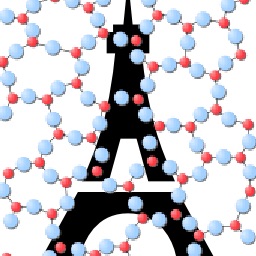The PARISlab and the LC2 laboratory are offering the civil engineering materials major in the Civil and Environmental Department at UCLA.
Courses offered
- CEE 101 Statics
Lecture, four hours; discussion, two hours; outside study, six hours. Requisites: Mathematics 31A, 31B, Physics 1A.
Newtonian mechanics, vector representation, and resultant forces and moments. Free-body diagrams and equilibrium, internal loads and equilibrium in trusses, frames, and beams. Planar and nonplanar systems, distributed forces, determinate and indeterminate force systems, shear and moment diagrams, and axial force diagram. Letter grading.
- CEE 102 Dynamics of particle and bodies
Lecture, two hours; discussion, two hours; outside study, six hours. Prerequisite: CEE 101; Recommended requisites: courses C104, 108, 120, Materials Science 104.
Kinematics and kinetics of particles. Linear and angular momentum and impulse. Multiparticle systems. Kinematics and kinetics of rigid bodies in two- and three-dimensional motions. Letter grading.
- CEE 104/204 Structure, Processing, and Properties of Civil Engineering Materials
Lecture, four hours; discussion, two hours; outside study, six hours. Enforced requisites: course 101, Chemistry 20A, 20B, Materials Science 104, Mathematics 31A, 31B, 32B, Physics 1A, 1B, 1C. Enforced corequisite: course 108.
Discussion of aspects of cement and concrete materials, including manufacture of cement and production of concrete. Aspects of cement composition and basic chemical reactions, microstructure, properties of plastic and hardened concrete, chemical admixtures, and quality control and acceptance testing. Development and testing of fundamentals for complete understanding of overall response of all civil engineering materials. By end of term, successful utilization of fundamental materials science concepts to understand, explain, analyze, and describe engineering performance of civil engineering materials. Concurrently scheduled with course C204. Letter grading.
- CEE 105/205 Fundamentals, Properties, and Technology of Industrial Glasses
Lecture, four hours; discussion, two hours; outside study, six hours. Enforced requisites: CEE 101, Mathematics 31A/31B/32B, Physics 1A/1B/1C, Chemistry and Biochemistry 20A/20B. Enforced corequisite: CEE 108.
The objective of this course is to provide a fundamental understanding of the nature and properties of glasses, in the field of infrastructures and technology (structures, LCD screens, touch-screen devices, fiber optics…). Special attention will be paid on glass formation and its relevance to manufacturing, and on composition-structure-properties relationships. Special Notes for Undergraduate Students: Students with a minimum 3.0 are allowed to enroll. Also, this course will satisfy major electives. The instructor will coordinate with the Civil and Environmental Engineering SAO to submit necessary paperwork to the Office of Academic and Student Affairs to petition this course to count toward major electives. To enroll in this course you may request a PTE # from the instructor.
- CEE 206 Modeling and simulation of engineering materials
Lecture, four hours; discussion, two hours; outside study, six hours.
The objective of this course is to provide a fundamental understanding of modeling and numerical simulations for civil engineering materials. A large part of the course will be focused on practical examples and applications. By the end of the course, students are expected to be able to independently run simulations – at a scale relevant to the targeted problems. Letter grading.
- CEE 108 Introduction to Mechanics of Deformable Solids
Lecture, four hours; discussion, two hours; outside study, six hours. Enforced requisites: Mathematics 32B, Physics 1A. Enforced corequisite: course 101.
Review of equilibrium principles; forces and moments transmitted by slender members. Concepts of stress and strain. Stress-strain relations with focus on linear elasticity. Transformation of stress and strain. Deformations and stresses caused by tension, compression, bending, shear, and torsion of slender members. Structural applications to trusses, beams, shafts, and columns. Introduction to virtual work principle. Letter grading.
- CEE 182/282 Rigid and Flexible Pavements: Design, Materials, and Serviceability
Lecture, four hours; discussion, two hours; outside study, six hours. Recommended requisites: courses C104, 108, 120, Materials Science 104.
Correlation, analysis, and metrication of aspects of pavement design, including materials selection and traffic loading and volume. Special attention to aspects of pavement distress/serviceability and factoring of these into metrics of pavement performance. Discussion of potential choices of pavement materials (i.e., asphalt and concrete) and their specific strengths and weaknesses in paving applications. Unification and correlation of different variables that influence pavement performance and highlight their relevance in pavement design. Concurrently scheduled with course C282. Letter grading.
